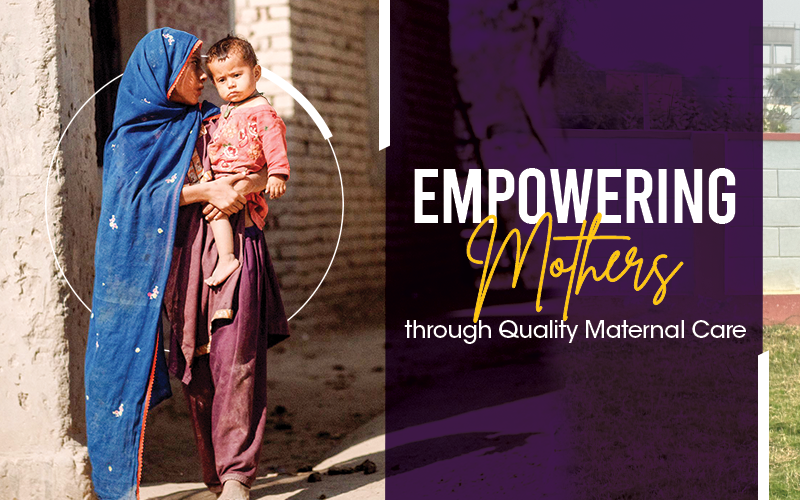The State of Maternal Care
With limited access to essential medical care, more than 800 women lose their lives to pregnancy-related complications in Pakistan every day. Additionally, 54 out of every 1,000 newborns lose their life after birth in Pakistan, compared to just 5 out of every 1,000 newborns in the United States. Pakistan ranks 124th among 195 countries in terms of Healthcare Access and Quality index (The Lancet), highlighting the incredible need for quality care.
75% of these deaths are preventable, as conditions due to premature birth, haemorrhage, preeclampsia, and infections can be treated in a health facility. Women living in rural areas cannot afford these facilities, nor can they travel long distances in their conditions.
Empowering Care Through Intervention
Primary care intervention is at the root of improving community health for all. Interventions such as deploying Community Health Workers (CHWs) are becoming increasingly pivotal in maternal health, considering the lack of larger facilities in rural areas. Similarly, telemedicine and mobile clinics can further bridge the rural-urban healthcare gap. The landscape has indeed changed with the onset of natural calamities such as COVID-19 and flooding, leading to innovative solutions being implemented.
For the past 20 years, international organisations have consistently made progress in reducing maternal and neonatal mortality rates. Examples of interventions are:
- Increasing prenatal visits
- Presence of skilled birth attendants
- 2 days of postpartum care
- Improving medication usage
- Increasing prenatal screening tests
- Improving hygiene and infection control measures
Other important measures include refurbishing maternity wards, strengthening ambulance systems, increasing community health workers, implementing childbirth preparation plans, and supporting universal health coverage. With the United Nations Sustainable Development Goal of Good Health and Well-Being (Goal 3), the aim of all nations must be to save the lives of mothers and their newborns while ensuring their developmental health is safeguarded. Aligning local efforts with a worldwide mission strengthens international support, leading to collective effort.
IHHN’s Impact
The Indus Hospital and Health Network (IHHN) has been dedicated to saving women’s lives through robust maternal and neonatal programmes. We understand the challenges of undue childbearing and limited healthcare access. Facilities such as the Sheikh Saeed Memorial Campus host 81 beds dedicated to Obstetrics, Gynaecology, Maternal, and Child Health Services. Not only do we envision a strong foundation for women to prioritise their health, we believe in their empowerment to ensure that lifesaving treatment and care is never hindered.
IHHN has supported more than 34,000 deliveries, with 28,000+ benefiting from the midwifery programme and 27,000+ benefiting from prenatal care services (as of 2023). Additionally, our NourishMom Nutrition Programme supports the nutritional health of new mothers and protects their well-being during and after their pregnancy, ensuring their utmost care. Under the initiative, families will receive monthly Ration Bags for 12 months, with pregnant women receiving support for the first 6 months to sustain proper nutrition until delivery. Post-childbirth, mothers will continue to receive Ration Bags for 6 additional months to promote breastfeeding and prevent infant malnutrition.
With donations, advocacy, and volunteer programmes, there are numerous paths you can take to ensure healthier futures for mothers and babies. Together, let’s join hands and play our role in reducing mortality rates and supporting holistic well-being.



